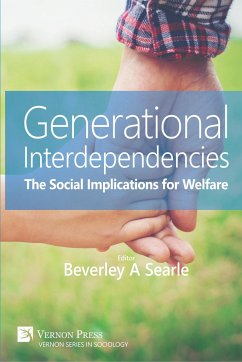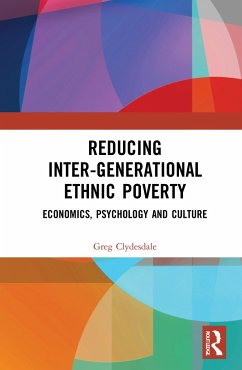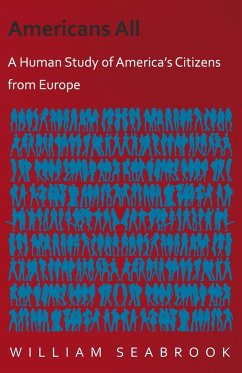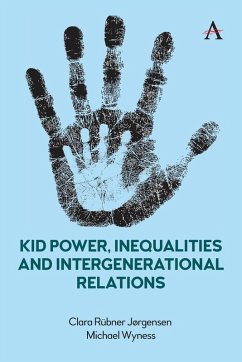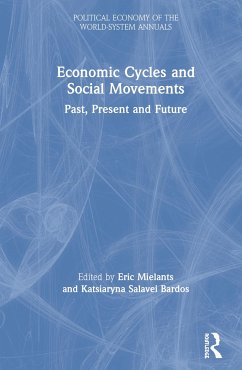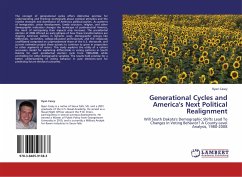
Generational Cycles and America's Next Political Realignment
Will South Dakota's Demographic Shifts Lead To Changes In Voting Behavior? A County-Level Analysis, 1980-2008
Versandkostenfrei!
Versandfertig in 6-10 Tagen
32,99 €
inkl. MwSt.

PAYBACK Punkte
16 °P sammeln!
The concept of generational cycles offers distinctive promise for understanding and thinking strategically about political attitudes and the relative strength and dominance of America's political parties. As patterns of immigration, urban development, family structure, religion, and other demographic indicators changes the landscape of postindustrial America, the merit of anticipating their impacts only increases. The presidential election of 2008 offered an early glimpse of how these transformations are shaping American politics in dynamic ways. Demographic groups like Millennials, nonwhites,...
The concept of generational cycles offers distinctive promise for understanding and thinking strategically about political attitudes and the relative strength and dominance of America's political parties. As patterns of immigration, urban development, family structure, religion, and other demographic indicators changes the landscape of postindustrial America, the merit of anticipating their impacts only increases. The presidential election of 2008 offered an early glimpse of how these transformations are shaping American politics in dynamic ways. Demographic groups like Millennials, nonwhites, college-educated professionals, and the religiously unaffiliated comprised an unprecedented share of the U.S. electorate, and current estimates project these subsets to continue to grow in proportion to other segments of voters. This study explores the utility of a cohort succession model for explaining differentials in voting patterns in South Dakota for each presidential election cycle from 1980-2008, while controlling for other demographic variables. The results hold promise for a better understanding of voting behavior in past elections--and for predicting future electoral outcomes.




